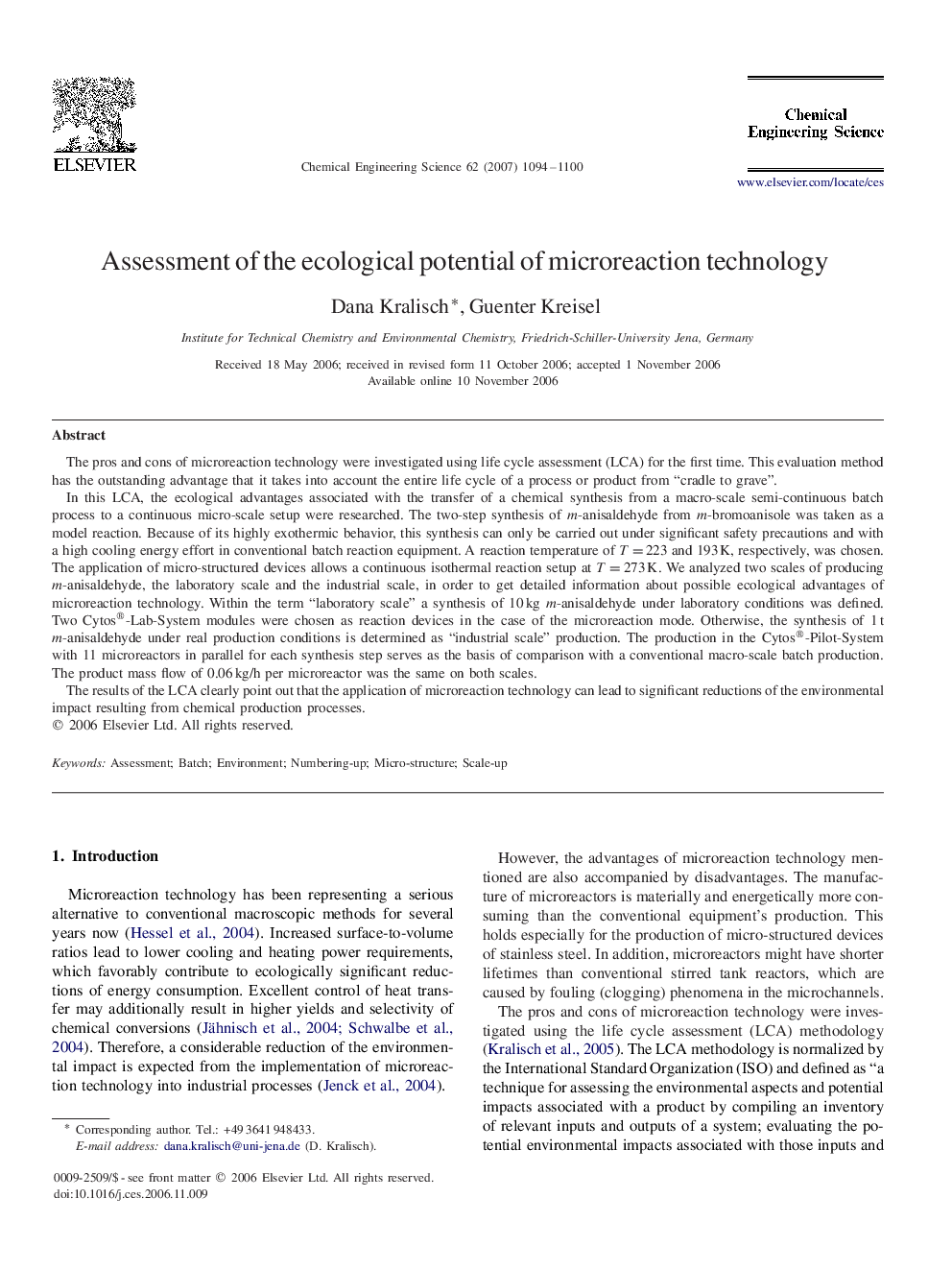| Article ID | Journal | Published Year | Pages | File Type |
|---|---|---|---|---|
| 158500 | Chemical Engineering Science | 2007 | 7 Pages |
The pros and cons of microreaction technology were investigated using life cycle assessment (LCA) for the first time. This evaluation method has the outstanding advantage that it takes into account the entire life cycle of a process or product from “cradle to grave”.In this LCA, the ecological advantages associated with the transfer of a chemical synthesis from a macro-scale semi-continuous batch process to a continuous micro-scale setup were researched. The two-step synthesis of mm-anisaldehyde from mm-bromoanisole was taken as a model reaction. Because of its highly exothermic behavior, this synthesis can only be carried out under significant safety precautions and with a high cooling energy effort in conventional batch reaction equipment. A reaction temperature of T=223T=223 and 193 K, respectively, was chosen. The application of micro-structured devices allows a continuous isothermal reaction setup at T=273K. We analyzed two scales of producing m-anisaldehyde, the laboratory scale and the industrial scale, in order to get detailed information about possible ecological advantages of microreaction technology. Within the term “laboratory scale” a synthesis of 10 kg m -anisaldehyde under laboratory conditions was defined. Two Cytos®Cytos®-Lab-System modules were chosen as reaction devices in the case of the microreaction mode. Otherwise, the synthesis of 1 t m -anisaldehyde under real production conditions is determined as “industrial scale” production. The production in the Cytos®Cytos®-Pilot-System with 11 microreactors in parallel for each synthesis step serves as the basis of comparison with a conventional macro-scale batch production. The product mass flow of 0.06 kg/h per microreactor was the same on both scales.The results of the LCA clearly point out that the application of microreaction technology can lead to significant reductions of the environmental impact resulting from chemical production processes.
